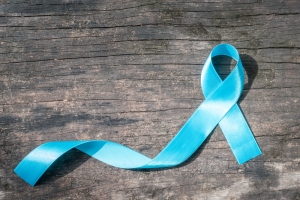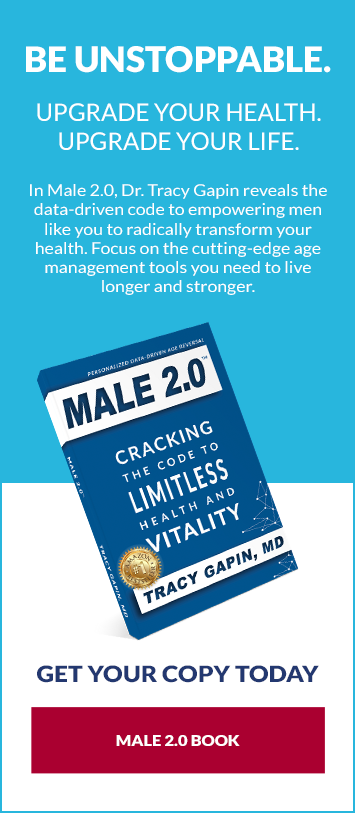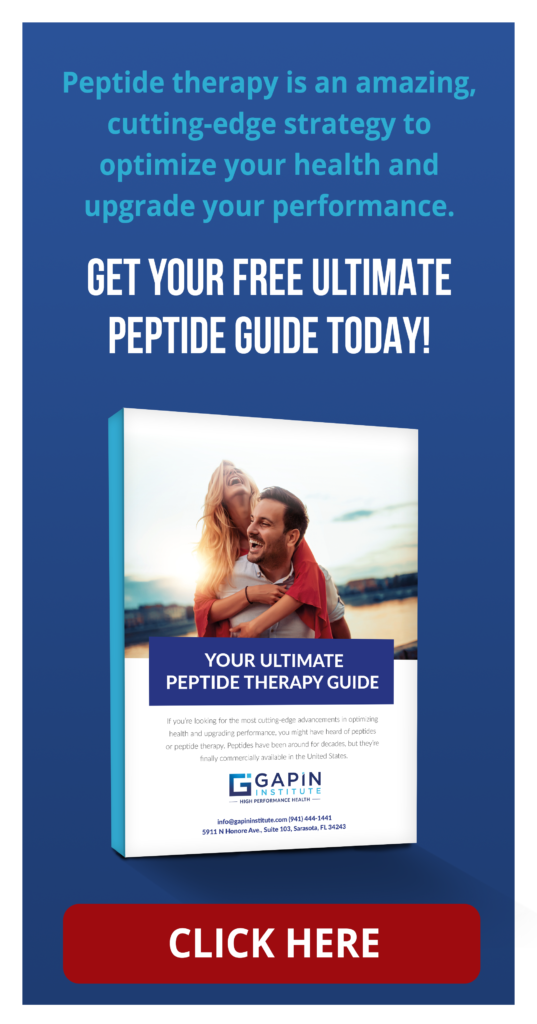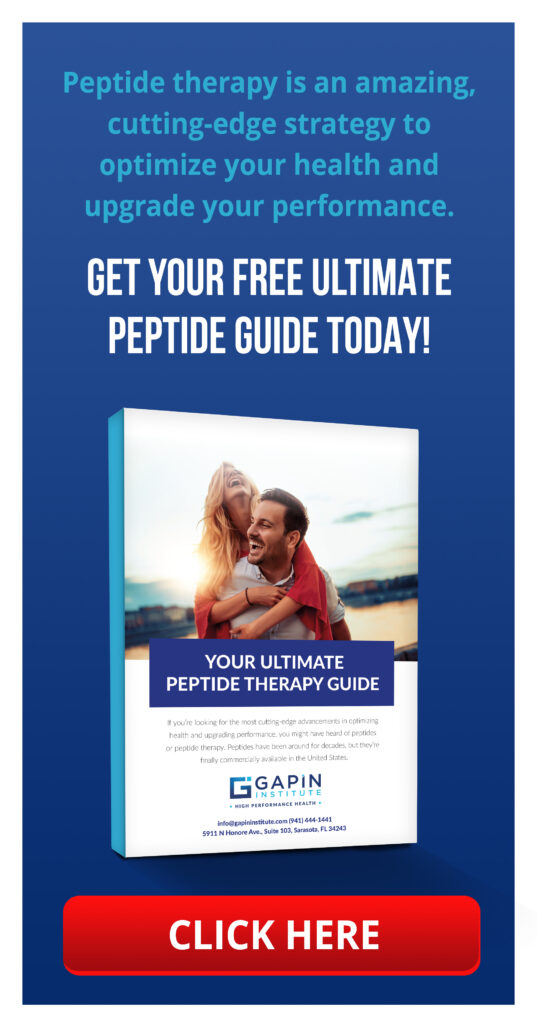
Prostate cancer is the second most common cancer in the United States. One in 9 men will be diagnosed with prostate cancer at some point in their lives. And one in 100 men over age 60 will have prostate cancer by their 70th birthday.
Don’t be a statistic. Don’t put yourself at risk. Monitor your prostate health.
Although prostate cancer is common, you can reduce your risk. A healthy lifestyle can help you avoid serious diseases like prostate cancer, heart disease, and even erectile dysfunction.
September is Prostate Cancer Awareness Month, which means it’s the perfect time to regain your sexual health and wellbeing. Whether you’re one of the 3 million men living through prostate cancer or you’re looking to reduce your risk of developing prostate cancer moving forward, we’ll give you some easy steps you can take to invigorate your sexual wellness.
In honor of Prostate Cancer Awareness Month, we’ve created the ultimate 30-Day Prostate Health Challenge.
These 30 tips will help you:
- Reduce your risk of prostate cancer
- Lose weight
- Increase your libido
- Revitalize your overall health
- Enhance your energy and vitality
We challenge you to follow these 30 tips this month and beyond, so you can look, feel, and be your healthiest self.
We recommend that you implement one tip per day. Then, you should keep these lifestyle changes up for at least 30 days. After 30 days, you start to create a habit—and healthy habits create a healthy life!
So, for example, if you stop smoking on day 15… We challenge you to keep up with it for another whole month, not just for the remaining 15 days.
We make our “30-day challenge” into a faux “60-day challenge” on purpose.
The longer you follow the challenge, the more likely these changes will “stick.” You don’t want to fall back into your old, unhealthy, low-energy lifestyle once September is over. You don’t want this to just be another “fad” that comes and goes… and you don’t want to end up with the same unhealthy habits you’ve always had.
You want to finally live the healthy, vigorous life you’ve dreamed of.
And you want these changes to actually reduce your risk of prostate cancer. And fighting cancer is, unfortunately, a lifelong fight, which means you need to make serious changes that show a true difference.
So let’s get to improving your prostate health!
Day 1 – Evaluate your risk.
All men are at risk for prostate cancer. But it doesn’t hurt to evaluate your personal risk to better understand how your lifestyle choices can reduce your predisposed threat.
The purpose of evaluating your risk is not to scare you—it’s to prepare you!
What are the risk factors for prostate cancer?
- Age: Prostate cancer is more common after age 50, and the risk increases with every decade of life.
- Race: African-Americans tend to have the highest risk and severity. Asian men (in Asia) tend to have the lowest risk, but their risk increases if they move to the west.
- Genetics: Those with a father or brother with prostate cancer have a twofold increase in risk themselves.
- Location: Risk is significantly higher in the United States than in Asia. Studies also show that men who live north of 40 degrees latitude have a higher risk of dying from prostate cancer (likely due to decreased vitamin D levels).
If you have any of these risk factors, don’t fret. The following 30 tips can help you reduce your risk of prostate cancer so you can take control of and improve your own health.
Day 2 – Visit your doctor about your prostate health.

When was the last time you got a checkup?
You should be visiting your doctor at least once a year for a physical. This ensures your doctor can catch any potential problems before they become serious.
Talk to your doctor about any risk factors for prostate cancer. If you are over 50, your doctor will likely start testing your PSA levels.
PSA (prostate-specific antigen) can help determine whether or not you are currently at risk for prostate cancer. PSA levels have been linked to the onset and aggressiveness of prostate cancer. In general, low levels mean low risk of cancer right now, but this could change. If you have high levels, your doctor will want to do a biopsy to check for cancer.
Don’t fear the doctor. They’re there to keep you healthy so you can live a long and fruitful life!
Learn more here: What Does A High PSA REALLY Mean?
Day 3 – Create a plan to reduce your risk of prostate cancer.
Now that you know your risk and have talked to your doctor, it’s time to create a “lifestyle change” plan. You want to start with clear objectives for your health, so you can create a course of action.
We’ve made this step easy for you! We’re giving you 30 tips and tricks to take back your health. So all you need to do is commit.
Today, we want you to come up with your intrinsic motivators to stick to this plan.
Why are you making this change?
Write: “I am changing my lifestyle because I want…”
For example, “I am changing my lifestyle because I want to live long enough to see my grandchildren grow up.” Or, “I am changing my lifestyle because I want to accomplish more in my business.”
Have a clear objective and goal that will keep you going.
Then, create a plan of action. What do you personally need to do to stick to these lifestyle changes?
Maybe you need to put post-it notes on your mirror. Perhaps you need to create a competition with your friends or maybe you need to have your wife watching you like a hawk.
Write down what will keep you accountable, so you can focus on meeting your long-term health goals and objectives.
With health, you’ve never actually “attained” your goal, which can be frustrating, so you need a way to stay motivated even during the tough days.
Day 4 – Talk to your partner.

If you are going to make lifestyle changes, you want your family, friends, and partner onboard with you. This keeps you motivated and dedicated, while also helping to keep you accountable—even on the days, you don’t want to stick the course.
Plus, your partner is likely also concerned about your health and wellbeing. Talk to them about your risks and doctor visit, so they feel they are on this journey with you.
Health is not something you should hide, especially from those you love. They’ll appreciate that you’re taking steps to be healthier—for yourself and for them.
Read: Does My Husband Have Prostate Cancer?
Day 5 – Clean your pantry.
Now you want to do a cleanout of your pantry so you can fill it with prostate-healthy foods.
Start by getting rid of anything processed. If its expiration date is more than 6 months from the time of purchasing, get rid of it. These sorts of packaged, processed foods contain chemicals and toxins that are known to cause cancer (carcinogens).
Whole foods are the best way to keep your organs and cells healthy. They provide legitimate nutrients that your body needs to fight off disease and cancer.
You really are what you eat—so eat good stuff!
Day 6 – Focus on plants, not meat.
I don’t believe in completely cutting meat out of your diet. However, meats—especially red meats—are high in fats. A diet of unhealthy fats has been linked to an increased risk of prostate cancer.
Plus, a plant-based diet generally provides your body with a greater range of necessary nutrients, especially antioxidants (which fight free radical diseases that cause cancer).
So, stick to plants the majority of the time. When eating meat, choose lean cuts like poultry (chicken and turkey). Make sure your meats, especially beef, are grass-fed and organic to reduce the hormones going into your body.

Day 7 – Eat 2 cups of fruits and veggies.
You want to get at least 2 cups of fruits and veggies every day. These plants are full of vitamins and nutrients that can help reduce prostate cancer. They’re also low in calories and fat, so a plant-based diet can also help you maintain a healthy weight.
Two easy ways to make sure you’re getting your fruits and veggies:
- Every plate should be filled with at least 70% plants.
- Have at least one snack of fruits or veggies per day.
Not sure how to get more fruits and veggies in your diet?
Check out N1 Performance Health– a personalized men’s health and performance program designed to radically upgrade your health.
Day 8 – Get your tomatoes.
All fruits and veggies are good for you, but tomatoes hold a special place in the fight against prostate cancer. Tomatoes are high in lycopene, which is a carotenoid that has been linked to a reduced risk of prostate cancer. The lycopene in tomatoes and tomato paste can help reduce the inflammation that causes cancer. Although the research still isn’t 100% proven, eating more tomatoes definitely doesn’t hurt.
Learn more: Will Lycopene Improve My Prostate Health & Fight Prostate Cancer?
Day 9 – Go for a walk.

Physical activity is directly linked to reduced risk of cancer. In fact, frequent exercise can actually de-methylate your genes, which can help “turn off” those genes that put us at risk for cancer and tumor growth! A high BMI or weight has been linked to an increased risk of prostate cancer, while leaner men have a lower risk.
Walking every day helps get your body moving while also releasing stress. It can also help you shed extra pounds, increase muscle mass, and boost metabolism. Just a little bit of exercise can show major results!
Day 10 – Drink wine.
Western Europeans have lower rates of prostate cancer because of their Mediterranean diet. This diet has major cancer-fighting properties that we can learn from.
One part of this diet is red wine. The skin of red grapes have resveratrol, which is an antioxidant that’s proven to fight against the growth of cancer. Red wine has also been linked to a decreased risk of cardiovascular disease.
Stick to one glass of red wine every day or every other day. Drinking too much can actually neutralize any beneficial effects and start to do more harm than good.
Day 11 – Cut the alcohol.
Wait a minute… Didn’t we just say to drink wine?
Yup! But only one glass to get the necessary resveratrol. Studies show that overconsumption of alcohol may worsen your risk of cancer. Keep the consumption low to avoid hurting your genes and putting you at risk for disease.
Did you know that beer is estrogenic? That’s right, the hops in beer actually mimic estrogen in the body. This can lower your testosterone levels, which is in turn linked to increased risk of prostate cancer.
Day 12 – Eat more fish. 
Another part of the cancer-fighting Mediterranean diet is fish. Fish have omega-3 fatty acids, which are “good fats” that can keep your testosterone high while clearing out your arteries. The consumption of fish has been linked to a reduced risk of prostate cancer.
The fish with the most omega-3s are sardines, tuna, mackerel, trout, and salmon. Eating a dish with these even once a week can help slow the growth of cancer cells.
Can’t stand the fishy flavor? Fish oil supplements can help you get those necessary fatty acids as well. Flaxseed is another source of omega-3s.
Day 13 – Avoid Dairy
Some studies have shown that men who eat a lot of dairy products have the highest risk of developing prostate cancer. Although results have been varied, there are a number of studies that tell us dairy isn’t great for our bodies.
Plus, dairy is high in calcium… and high levels of calcium may actually increase prostate cancer risk. Some studies have found that consuming a lot of calcium may increase the risk and severity of prostate cancer.
So make the commitment to avoid dairy. Swap your coffee creamer for almond milk. Try out veggie cheese in your homemade omelets. It’s easier than ever to go dairy-free at home and in restaurants.
(You can treat yourself to pizza every once in a while… but only if you make an effort to avoid milk, cheese, and other dairy products on other days.)
Day 14 – Boost your vitamin D levels. 
Avoiding dairy can help lower your risk of prostate cancer… But it can also hurt your vitamin D levels. And you need strong vitamin D in order to live a healthy life. In fact, low vitamin D has been linked to aggressive prostate cancer. There is a direct relationship: the lower the vitamin D levels, the more aggressive the prostate cancer.
The best way to get your vitamin D is sunlight. Just 10 minutes of exposure to sunlight can give you your entire vitamin D dosage for the day. After 10 minutes, make sure you put sunscreen on to prevent burns or skin damage.
Fatty fish like tuna, mackerel, and salmon also have vitamin D. Beef liver and foods fortified with vitamin D are also possible.
If you’re still not getting enough vitamin D, talk to your doctor about finding a healthy supplement that will work for you.
Day 15 – Stop smoking.
Smoking impacts almost every area of your life. The toxins and chemicals found in cigarettes (and cigars) can do serious, irreversible damage to your organs and cells. Specifically, research shows that smokers have a more aggressive form of prostate cancer and a greater risk of recurrence.
But studies have shown that prostate cancer patients who quit smoking for more than 10 years have the same mortality risk than those who have never smoked. So you can lower your risk of cancer and other serious diseases by quitting today.
Make the commitment!
Day 16 – Drink coffee.
Coffee has been a medical “mystery” for some time—is it or is it not good for you? 
In terms of prostate cancer, coffee might actually be a potential help. Some research has found that every three cups of coffee you drink can help reduce the risk of fatal prostate cancer by 11%. An Italian study found that three cups of coffee every day reduced prostate cancer risk by 53% compared to drinking zero to two cups daily.
Interestingly, though, how you prepare the coffee may matter. For example, in Italy, they don’t use a filter. In a Norwegian study, men who drank boiled water (without a filter) had a lower risk of prostate cancer than those who drank coffee with a filter. This is likely because cafestol and kahweol, which are coffee’s known cancer-fighting chemicals, may get trapped in the filters while the coffee is brewing. So, drink fresh, boiled coffee if you want to see the cancer-fighting effects.
However, it’s still important to note that too much coffee has its downsides too. This can lead to seizures, heart problems, migraines, adrenal fatigue, and more. These risks are amplified if you are on any medications. So talk to your doctor about how to monitor your caffeine intake while reducing your risk of prostate cancer.
Day 17 – Avoid folic acid.
Studies have looked at the link between folate and prostate cancer. While the research is not yet conclusive, some studies believe folate plays a role in reducing the risk of prostate cancer.
Regardless, studies show that folic acid (a man-made form of folate) increases the risk of prostate cancer.
So, while folate is important, you don’t want to supplement it with folic acid in order to get your daily dose of folate. Instead, get your folate through green vegetables, beans, and orange juice.
Day 18 – Exercise at least 3 hours weekly.
This is everyone’s favorite tip… exercise. But working out has immense benefits that you can’t ignore. From stress reduction to improved sleep to lowered cardiovascular and respiratory disease risks, exercise really is a cure-all for a number of ailments. It has even been shown to “turn off” those genes that are predisposed to cancer, leaving you with healthier genes and lower risk.
Studies especially show that working out can reduce your risk of prostate cancer. This is likely because exercise lowers inflammation, improves immune function, and raises levels of natural antioxidants—which work together to fight against cancer.
It doesn’t really matter what exercise you do—as long as you get your heart rate up. I typically recommend high-intensity interval training (HIIT) because it helps burn fat and boost testosterone fast.
Day 19 – Lower your stress.
Stress is the modern-day plague. It is directly correlated to cardiovascular disease, stroke, and even cancer. Stress has especially been linked to incidence and aggressiveness of prostate cancer. Stress can actually manipulate your genes in a way that makes you susceptible to disease; in reverse, reducing stress can actually make you more immune to sickness.
Ways to lower stress include:
- Exercise (see “Day 16”)
- Meditation
- Yoga
- Breathing techniques
- Sex
- Spending time with family, friends
- Picking up a hobby
- Getting rid of the stressor
- Talking to a professional
Learn more about the impacts of stress here.

Day 20 – Get your zinc.
Zinc is found in all of our body’s organs and fluids, but it has an especially high concentration in the prostate tissue. This has led researchers to look at the impact of zinc levels on prostate diseases and cancer. There have been conflicting results, and often they come down to the conclusion: we’re still not sure.
So, while the question is up in the air, there’s one thing that we can be sure of: we need zinc. It’s necessary for all of our organs’ functions, and low zinc can be detrimental to health. Zinc plays an especially critical role in sexual health.
But there’s something else we know: zinc supplementation could very well increase prostate cancer risk. Studies show that zinc vitamins contain chemicals that could be linked to cancer.
So you want to get your zinc, but you want to get it naturally through the foods you eat. Oysters are especially high in zinc, as are other types of seafood like crabs and lobster. You can also get zinc in poultry, red meat, beans, nuts, and whole grains.
Day 21 – Throw out your multivitamins.
While we’re on the subject of supplementation, it’s time to get rid of those one-a-day multivitamins. Multivitamins are chock full of vitamins—or so they claim. They actually contain a lot of chemical derivatives that look like vitamins, but your body can’t fully absorb them. You end up wasting your money while potentially adding more toxins to your body.
Studies have even looked at the impact of multivitamins and prostate cancer specifically. One study found that men who took multivitamins were 32% more likely to develop advanced prostate cancer and 98% more likely to die from the disease.
While the relationship is still unclear, it’s best to avoid multivitamins. Instead, focus on getting a well-rounded diet. If you need additional supplementation, take individual organic vitamins for each need, as opposed to “catch-all” multivitamins.
Day 22 – Get your isoflavones.

Studies show that isoflavones may play a protective role against the development of prostate cancer. This is likely because isoflavones may fight off carcinogens, especially in the tissues of the body (like the prostate tissue).
You can find isoflavone concentrations in:
- Tofu (soybeans)
- Chickpeas
- Lentils
- Alfalfa sprouts
- Peanuts
- Green tea
Green tea is especially full of antioxidants that can help fight off prostate cancer. Add a few more isoflavones to your salads or meat dishes to get those protective effects!
Check out N1 Performance Health– a personalized men’s health and performance program designed to radically upgrade your health.
Day 23 – Focus on healthy fats.
You can prevent prostate cancer through diet—especially if you eat a lot of healthy fats. This might be because a diet high in healthy fats helps boost testosterone production, and high testosterone levels are linked to lower risk of prostate cancer.
Focus on plant-based fats as opposed to animal fats. This gives you a strong testosterone base without increasing your risk of prostate cancer (like animal fats might).
Add these healthy fats to your diet to start seeing optimal sexual health:
- Olive oil
- Avocado
- Dark chocolate
- Eggs
- Fatty fish (trout, salmon, mackerel, sardines, herring)
- Nuts
- Chia seeds
- Coconut oil
- Yogurt
Day 24 – Have sex.

Sex is one of my favorite prescriptions— not only because it’s fun, but it’s also good for you. Sex is a great form of exercise and it reduces stress while improving sleep quality. Plus, studies show that men who ejaculate more frequently have a lower risk of prostate cancer.
That’s right—sex may help protect against prostate cancer. One study found that men who ejaculated (sex and masturbation included) 21 or more times a month had a 33% lower risk of prostate cancer compared to men who only report four to seven ejaculations per month. Other studies have reiterated similar findings.
The reason for this link is unclear, but it may have to do with “emptying” the prostate of any harmful substances and chemicals. Think of ejaculation as a prostate cleanse.
So go get busy! Tell your partner it’s necessary for your health.
Day 25 – Add spices to your diet.
Researchers at the Center for Holistic Urology in NYC recently discovered that herbs and spices may be able to fight against prostate cancer. They blended together ginger, oregano, rosemary, and green tea, and they found that it actually reduced prostate-cancer cell growth by 78%.
While you can purchase these blends, you can also just add more of these prostate-happy herbs to your diet. These spices are healthy and delicious additions to your diet that can help improve your overall health:
- Ginger
- Turmeric
- Cayenne
- Garlic
- Saffron
- Black cumin
- Black pepper
Day 26 – Know the signs and symptoms of prostate cancer.

The best way to prevent aggressive or fatal prostate cancer is to catch it early. Unfortunately, there often aren’t signs of prostate cancer that can instantly clue you into your health. The only real way to diagnose prostate cancer is a PSA test and biopsy with your doctor.
Nevertheless, there are some ways to keep an eye out for changes in your body that could indicate prostate cancer. Potential symptoms of prostate cancer include:
- Pain while urinating
- Difficulty stopping or starting urine stream
- Increase in urination frequency
- Diminished urinary stream
- A sensation of incomplete bladder emptying
- Blood in urine
- Painful ejaculation
- Blood in semen
If you’re frequently getting up in the middle of the night to go to the bathroom, you might want to talk to your doctor about a PSA test. Learn more about how to spot prostate cancer early here.
Day 27 – Control your genes.
Did you know that you have control over your genetic expression? Certain lifestyle choices can actually put you at risk for cancer—while others can minimize your risk!
It can often feel challenging to control our health. We have some semblance of control at work, in our relationships, and over our personality—but health often feels out of our control.
But this is proven incorrect. You can fight your genetics. You do have control over your health. Your body is yours!
Click to learn more about the role between your genes and cancer—and what you can do about it.
Day 28 – Retire today.
Yes, I’m telling you to retire today! But not actually…
We all have a “work to retire” or “work for the weekend” mindset. But this is actually stressing you out more, which could be increasing your risk for cancer.
Plus, studies show that retirement can actually kill us. The moment you stop working, your body starts to deteriorate, especially if you retire at a young age.
So, I’m telling you to retire today, meaning you need to find something that you’re going to love doing every day so you aren’t wishing and hoping for retirement. This might mean a new career path, a new company, or a new hobby. You want to find something that will make you passionate and excited every day—not dreading life “until” retirement.
Whatever you’ve always wanted to do when you retire—start doing it now instead. This will make you less stressed, happier, and less likely to go into “retirement” at a young age.
Stay youthful and stay vibrant…starting right now!

Day 29 – Don’t freak out (it’s treatable).
The best thing you can do for your health is to take care of it—not worry about it. The more you obsess, the more you make it a reality. Instead, obsess about living a healthy life—not about preventing cancer.
Best yet, prostate cancer is curable, especially when detected and treated early. In fact, more than 90% of prostate cancers are detected early enough for cure. The 5-year survival rate in the U.S. is 99%. If diagnosed, you can and will survive!
That means you don’t need to freak out about a prostate cancer diagnosis. This just means you need to keep up with your lifestyle changes and visit your doctor regularly so you can keep tabs on anything going on with your health.
Day 30 – Follow the course.
This is a lot to keep track of. You have 30 tips and tricks to help lower risk of prostate cancer and keep your health strong.
So how do you stick to it?
Most of us aren’t disciplined enough to do it alone. We keep up with something for a week or so, and then these “habits” quickly fall to the wayside (like all of our other diets and fads).
To make these lifestyle changes that will show long-term results, you need accountability.
You need someone watching to make sure you follow through on your promises.
We are that someone – the Gapin Institute for Men’s Health and Performance.
With G1 Performance Health, we’ll give you in-depth info about how to take control of your sexual and overall health. You’ll get a genetic-based report and analysis, along with a private consultation to set you on the right track.
Don’t do it alone. Our individually tailored-coaching will give you step-by-step instructions to make these lifestyle changes stick.
Follow my course and you’ll see major results, guaranteed.
Let’s get started!





